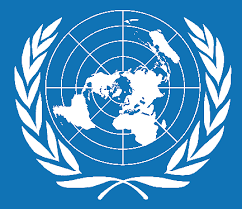
NEW DELHI: India is likely to post economic growth of 8.3% in 2010, a United Nations report released on Thursday has said.
The report - `Economic and Social Survey of Asia and the Pacific 2010' - an annual publication of the United Nations Economic and Social Commission for Asia and the Pacific (ESCAP) said the outlook for 2010 had improved significantly, with the Asia-Pacific region's developing economies forecast to grow by 7%, led by China at 9.5% and followed by India at 8.3%.
The report, however, urged the Asia-Pacific region to increase social spending to consolidate the region's stronger than anticipated economic rebound and to spur a fairer, more balanced and sustained economic recovery over the long term.
"Governments must embrace this opportunity to secure the gains of economic rebound by investing in social programmes that directly benefit people hardest hit by the crisis, act to reduce poverty and create a more sustainable economy," said Noeleen Heyzer, UN under-secretary general and executive secretary of ESCAP.
According to the report, even at the height of this crisis, Asia and the Pacific was still the fastest-growing region in the world, supported in large part by fiscal stimulus packages adopted by the region's biggest economies.
The survey, however, warned that rising inflationary pressures, especially of food products, and asset price bubbles, in a number of countries would make 2010 a complex year for policy makers who will have to balance sustaining the momentum of growth with financial stability.
"While monetary tightening may be necessary to restrain inflationary pressures, policy makers must be cautious about withdrawing fiscal stimulus packages lest the fledgling recovery process is disrupted," the report said. The survey provides governments of the Asia-Pacific region -- representing 62% of the world's population -- a roadmap towards a more inclusive and sustainable development path.
"We know from experience following the 1997 Asian financial crisis that it may be years before the poorest people are able to recover from the past two year's global crisis; governments need to maintain programmes to help people recover their assets and livelihoods," Heyzer said.
The survey promotes a number of regional policy recommendations for inclusive and sustainable growth, such as strengthening social protection and enhancing financial inclusion. Increased social spending directly supports income security for households by providing food security, education and access to health care, reducing the need by poorer families to maintain precautionary savings to protect against adversity. These families are then able to contribute more to local economies and invest more in their own development.
"The region has close to one billion people living in poverty at this very moment. The more people we lift out of poverty today, the larger consumer class and developed markets we create for the future," Heyzer said.
No comments:
Post a Comment